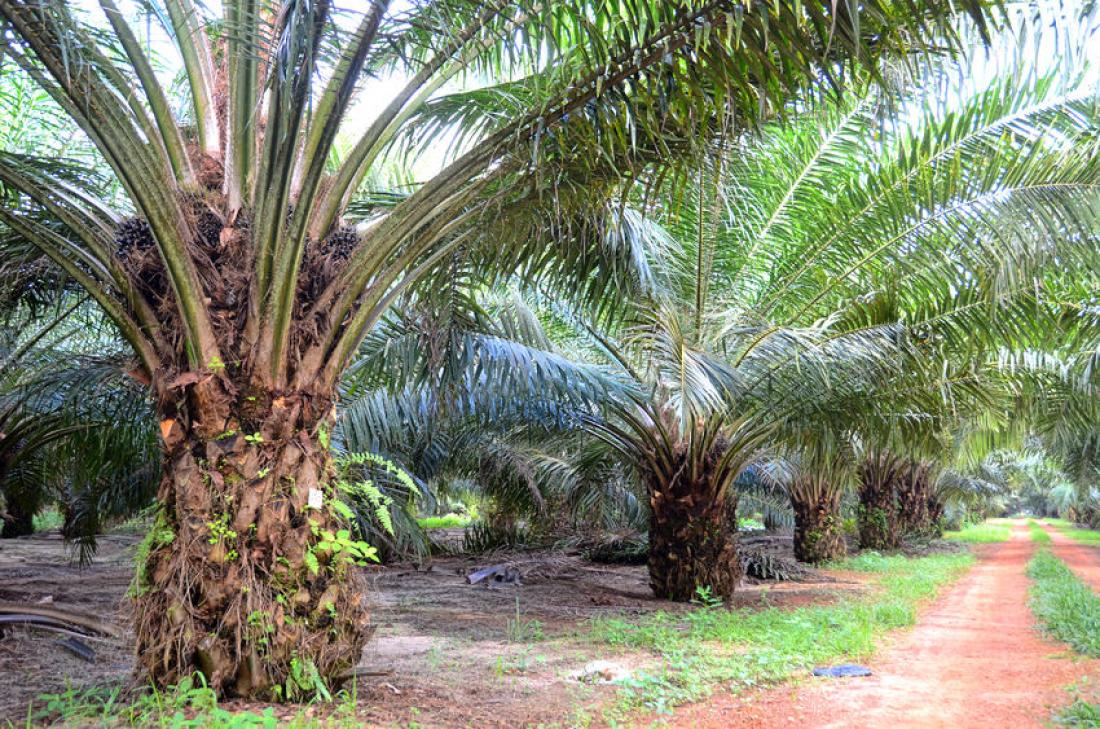After the fermentation process, protein levels increased more than three fold in palm oil decanter cake.
Animal feeds with high nutritional content help determine the productivity of livestock. However, due to increased competition for human food, the animal feed industry needs cheaper, readily available protein ingredients. Agro-industrial by-products such as palm oil wastes are a suitable candidate for animal feed because of their high fibre and carbon content, although they lack proteins and vitamins.
Fungi or other microorganisms are normally used to convert agro-industrial wastes into bio-proteins. Bio-proteins are rich in nutrition, easily digestible and economical, and are not used for human consumption.
To seek a better protein source from palm oil wastes, researchers from Universiti Malaysia Perlis investigated the potential of palm pressed fibre (PPF) and palm oil decanter cake (a solid waste produced from milling palm) for bio-protein production. They fermented PPF and palm oil decanter cake using a fungus called Aspergillus terreus UniMAP AA-1.
They found that after the fermentation process, protein levels increased more than three fold in palm oil decanter cake (from 146mg to 493mg per litre) compared to a 2.5 fold-increase in PPF (from 159mg to 401mg per litre).
Furthermore, the team reported that by increasing the amounts of palm oil decanter cake and fungi used in fermentation, the decanter cake could produce bio-protein levels of up to 1683mg per litre.
The researchers say this study provides preliminary data to further optimise the production of bio-proteins from palm oil wastes as potential ingredients for animal feed.
For more information about each research, please contact:
Khadijah Hanim Abdul Rahman
Faculty of Engineering Technology
Universiti Malaysia Perlis
01000 Kangar, Perlis, Malaysia
Email: [email protected]
Tel: +(604) 9798 751; Mobile: +(6016 ) 403 5724
About Pertanika Journal of Tropical Agricultural Science (JTAS)
Pertanika Journal of Tropical Agricultural Science (JTAS) is published by Universiti Putra Malaysia in English and is open to authors around the world regardless of nationality. The journal is published four times a year in February, May, August and November. Other Pertanika series include Pertanika Journal of Science & Technology (JST), and Pertanika Journal of Social Sciences & Humanities (JSSH).
JTAS aims to provide a forum for high quality research related to tropical agricultural research. Areas relevant to the scope of the journal include: agricultural biotechnology, biochemistry, biology, ecology, fisheries, forestry, food sciences, entomology, genetics, microbiology, pathology and management, physiology, plant and animal sciences, production of plants and animals of economic importance, and veterinary medicine. The journal publishes original academic articles dealing with research on issues of worldwide relevance.
Website: http://www.pertanika.upm.edu.my/
The papers are available from these links:
http://www.pertanika.upm.edu.my/Pertanika%20PAPERS/JTAS%20Vol.%2039%20(1)%20Feb.%202016/03%20JTAS-0618-2014.pdf
For more information about the journal, contact:
The Chief Executive Editor (UPM Journals)
Head, Journal Division, UPM Press
Office of the Deputy Vice Chancellor (R&I)
IDEA Tower 2, UPM-MDTC Technology Centre
Universiti Putra Malaysia
43400 Serdang, Selangor
Malaysia.
Phone: +(603) 8947 1622 | +(6016) 217 4050
Email: [email protected]
Date of Release: 1 April 2016
Acknowledgements
The Chief Executive Editor, UPM Journals



